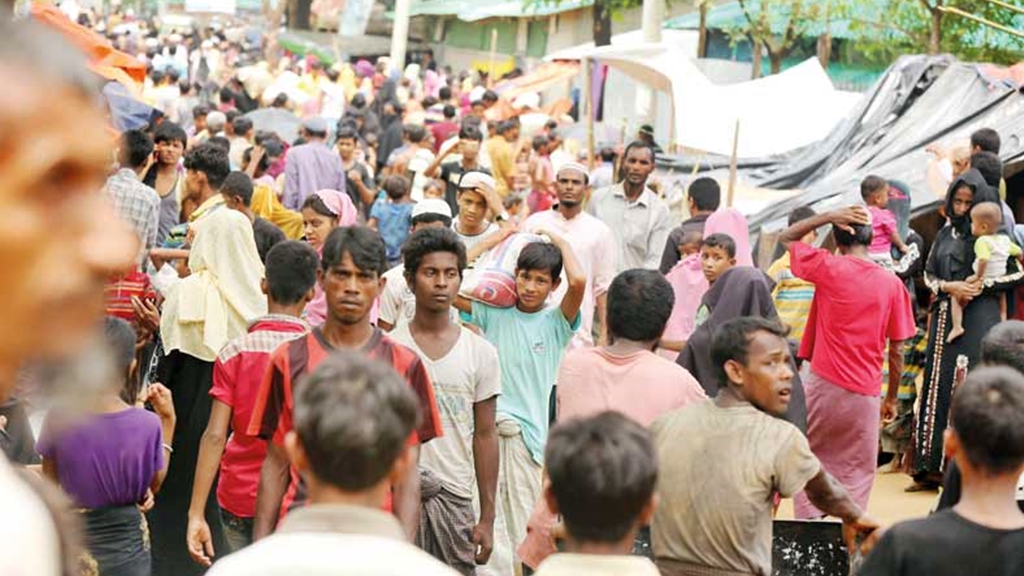
Myanmar should pay US$6 billion in compensation for Rohingya crisis: study finds
- 13/02/2019
- 0
The research, conducted by Swinburne University of Technology, Australia, interviewed 16,000 people and collected data on 3,300 households
A latest study has suggested that Myanmar should pay US$6 billion in damages to the Rohingya and the government of Bangladesh as the host country.
The compensation should be paid under two categories: economic loss and psychological loss, the study said.
Titled “Rohingya Mass Exodus: Who Should Pay Compensation and How Much?”, the study was unveiled in a seminar on “Rohingya Crisis-Global Challenges” at the Institutions of Diploma Engineers, Bangladesh (IDEB) in Dhaka on Tuesday.
The research, conducted by Swinburne University of Technology, Australia, interviewed 16,000 people and collected data on 3,300 households. The sample size for the study was 800,000 Rohingya refugees.
Dr Mohsin Habib, director and senior lecturer of the International Business Program of the university, presented the research findings.
The research concluded that the Bangladesh government should get US$2.6 billion as compensation for the losses including losses for environmental degradation and overall expenditure in order to respond to the crisis.
Based on the assets owned by refugees the study calculated that Rohingya refugees should get $165 million for the loss of land. The study found that the Rohingya refugees on an average owned two acres of land and three ponds per person.
The damages also include US$771 million for migration costs, US$98 million as the price of their homes, and US$220 million for the loss of other properties.
According to the study, Myanmar should pay US$2.1 billion as compensation for the trauma caused to the Rohingya refugees as a result of persecution in the country.
“The compensation has been calculated measuring two types of losses–economic and psychological. The data was verified by diplomats in Myanmar and the losses were estimated based on the exchange rate,” said Dr Habib.
Giorgi (George) Gigauri, chief of mission of the International Organization for Migration (IOM) in Bangladesh, said refugees outnumber the locals, making the latter a minority, adversely affecting employment and standards of living.
The Chairman of the Palli Karma Sahayak Foundation, Dr Qazi Kholiquzzaman Ahmad said the Rohingyas must go back to Myanmar as they are citizens of the country.
“But the security of their lives must be secured before they can be sent back. Until they leave Bangladesh, the development partners and international agencies must ensure them a decent life,” he said.
Fearing a potential rise of terrorism, Dr Kholiquzzaman said, “If they are deprived of a safe and normal life, education and other basic needs, the Rohingya may get involved in insurgency, which will deepen the crisis.”
Assistant Inspector General of Police Taptun Nasreen said the number of cases in Cox’s Bazar has increased after the Rohingya crisis. “Around 500 cases related to the Rohingyas have been filed since the crisis began, and we also fear the deterioration of law and order as a result.”
Chaired by IDEB President Engr A K M A Hamid, the seminar was also attended by Planning Minister M A Mannan and Senior Human Rights Advisor of the United Nations Bangladesh Heike Alefsen, among others.






